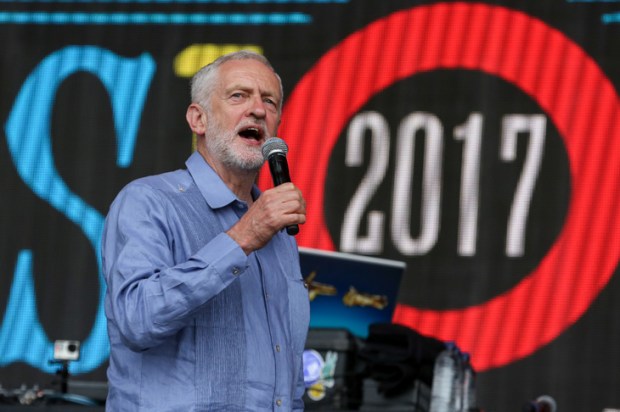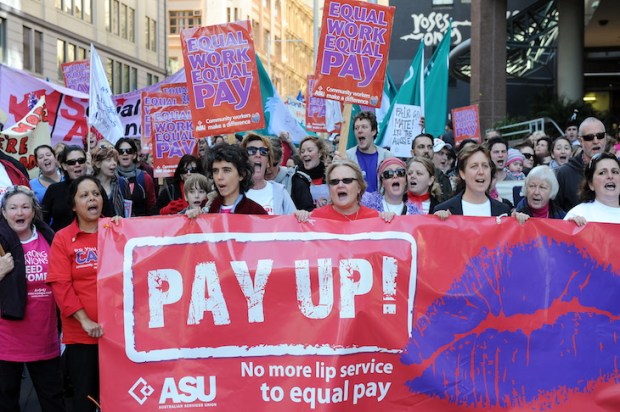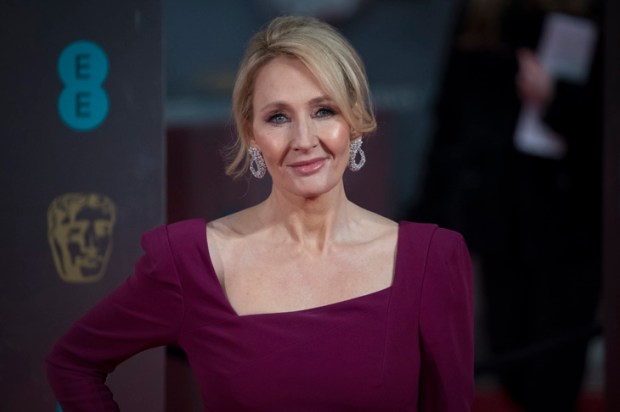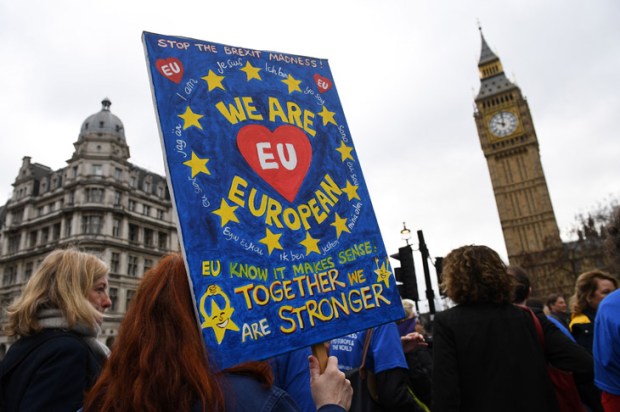In America, an argument has broken out among journalists, writers and intellectuals in the aftermath of the presidential election about whether Trump’s white working-class voters were decent, upright citizens let down by the supercilious liberal establishment or whether they were, in Hilary Clinton’s words, a racist, sexist, homophobic basket of deplorables.
The curious thing about this debate is that the defenders of Trump’s supporters are, for the most part, left–wingers, like the Berkeley sociologist Arlie Russell Hochschild, who spent five years chronicling a depressed blue-collar community in Louisiana, while those who disparage them as ‘in thrall to a vicious, selfish culture whose main products are misery and used heroin needles’ are conservatives. That last quote was from a piece in the National Review by Kevin D. Williamson.
The same role reversal has characterised the Brexit post-mortem on this side of the Atlantic. The most outspoken critics of the white working-class Leave voters have nearly all been conservatives, whether drawn from the ranks of Tory parliamentarians (Michael Heseltine, Anna Soubry, Ken Clarke) or Tory scribblers such as Matthew Parris and Janan Ganesh.
Their defenders, by contrast, have often been left-liberals such as the writer Amanda Craig, whose forthcoming novel features a smug London couple who move to Devon in the hope of discovering a pastoral idyll and have difficulty grasping why their impoverished neighbours support Brexit. In The Lie of the Land, which is due to be published in June, Craig takes issue with the caricature of Leave voters as ‘stupid, racist and jingoistic’. ‘I don’t agree with how they voted, but I respect them,’ she told the Guardian.
The example par excellence of this political cross-dressing is David Goodhart’s new book, The Road to Somewhere: The Populist Revolt and the Future of Politics. Goodhart is, by his own admission, a member of the liberal London tribe, or at least he was until recently. An Old Etonian and a former FT journalist, Goodhart founded Prospect, the left-of-centre political monthly, and is the sort of furrowed-browed hand-wringer who appears regularly on Newsnight to agonise about the slow death of the Labour party. Yet in spite of voting Remain, he has written what may turn out to be the most sympathetic and insightful book about Britain’s discontented masses.
He divides the UK’s population into two broad groups: the Somewheres and the Nowheres. Somewheres, who make up about half the population, tend to be white, uneducated, not particularly well-off and middle-aged or older, while Nowheres, who constitute between 20 and 25 per cent of the population, are predominantly well-educated, affluent and middle-aged or younger. The reason he’s given them these names is that the Somewheres feel a strong sense of attachment to a particular place, whether the part of the country they’re from or their nation, whereas the Nowheres base their identity on their educational and career achievements and are as comfortable in Paris and New York as they are in London or Cambridge.
Goodhart is a Nowhere, but he thinks the Somewheres are right to be angry about the neglect of their interests by Westminster’s political class. They’re not racist, sexist or homophobic, he says, but they do have legitimate grievances about the pace and scale of immigration, the fact that women are now supposed to prioritise ‘empowerment’ over traditional roles, and the left’s abandonment of social democracy for the lunacy of identity politics.
So why is it that our own ‘basket of deplorables’, most of whom would also vote Conservative if there were an election tomorrow, have found a champion in this liberal apostate? I suspect it is precisely because they have ended up in the ‘wrong’ electoral column that the white working classes on both sides of the Atlantic are attracting these sympathetic left-of-centre Boswells. Intellectuals like Hochschild and Goodhart realise that social democratic parties need to win back these blue-collar voters if they’re to have a hope of winning elections.
Neoliberal politicians and journalists, on the other hand, are suspicious of these political refugees and worried that their parties will adapt in all sorts of undesirable ways to hold on to their support, such as abandoning free trade and raising taxes. My sympathies are with the Hochschilds and the Goodharts, but as a classical liberal I’m also alive to the dangers of populism.
Got something to add? Join the discussion and comment below.
Get 10 issues for just $10
Subscribe to The Spectator Australia today for the next 10 magazine issues, plus full online access, for just $10.
You might disagree with half of it, but you’ll enjoy reading all of it. Try your first month for free, then just $2 a week for the remainder of your first year.














Comments
Don't miss out
Join the conversation with other Spectator Australia readers. Subscribe to leave a comment.
SUBSCRIBEAlready a subscriber? Log in